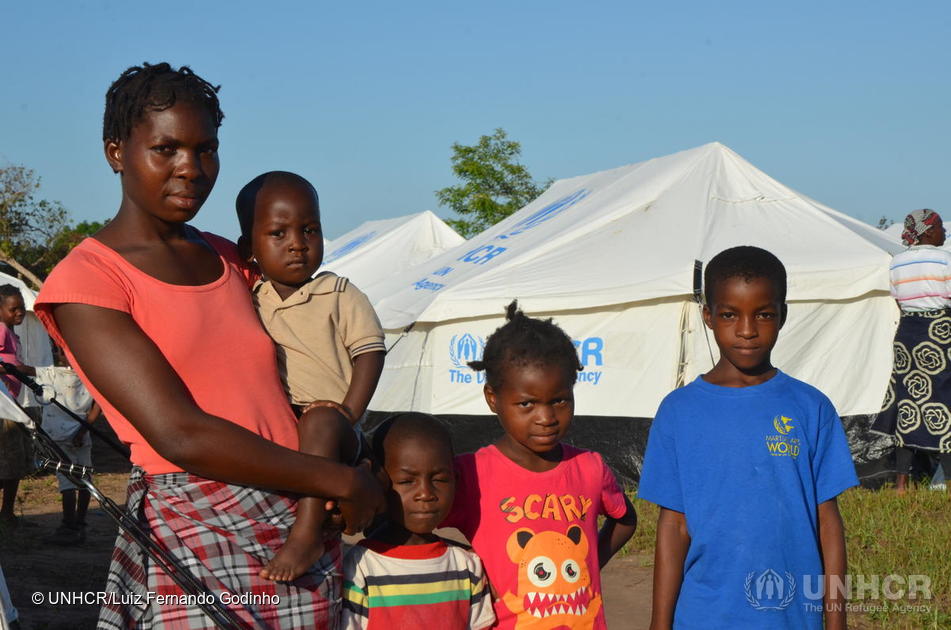CYCLONE IDAI EMERGENCY UPDATE – MOZAMBIQUE-ZIMBABWE-MALAWI
Over five months after Cyclone Idai brought widespread devastation across Mozambique, Zimbabwe and Malawi, and two months since the impact of Cyclone Kenneth on northern Mozambique, UNHCR and partners are still responding on the ground to support the affected populations, including internally displaced people and refugees.
As agreed with the authorities and partners, UNHCR has focused its engagement on delivery of core relief items and shelter, as well as protection services, for survivors of Cyclone Idai in the three countries. UNHCR also continues to provide protection monitoring and counselling for those affected by Cyclone Kenneth in northern Mozambique.
- UNHCR mobilised immediately after the disaster to show solidarity with the affected people, including locals who have been internally displaced and who for decades have generously hosted refugees and shared their limited resources with them, as well as the existing refugee population.
- From the first round of core relief items and emergency shelter that UNHCR airlifted in response to Cyclone Idai in March 2019, which provided support to 30,000 affected people in Mozambique, Zimbabwe and Malawi, over 65,000 core relief items have since been distributed through partners, including:
- 3,941 kitchen sets
- 21,012 blankets, medium thermal
- 4,244 jerry cans
- 4,634 buckets, 14/15L
- 2,022 solar lanterns
- 21,469 sleeping mats
- 7,501 mosquito nets
- 617 family tents
- 172 plastic rolls, 4x50m
- While distribution is still ongoing at some relocation sites, based on updated needs on the ground and requests by local authorities, UNHCR is mobilizing a second round of core relief items for an additional 30,000 people affected by Cyclone Idai in the three countries. The items will include mosquito nets, sleeping mats, plastic sheets, jerry cans, and blankets. UNHCR’s emergency experts will remain on the ground in the three countries until early July.Situation Update:
- Populations in Mozambique, Zimbabwe and Malawi are still bearing the devastating cost of the two successive cyclones that hit the region only a few months ago. Cyclone Idai could be the worst ever natural disaster to strike the southern hemisphere, with nearly 1,000 confirmed fatalities, more than 200,000 people displaced, and almost 3 million people affected across the three countries.
- Secondary effects of the catastrophe included outbreaks of infectious diseases such as cholera, with 6,570 cases reported in Mozambique alone. Pre-existing vulnerabilities within affected areas intensified the effects of the cyclone and floods, and increased protection risks, especially for women, children, the elderly and those with disabilities or medical conditions.
About UNHCR:
The Office of the United Nations High Commissioner for Refugees (UNHCR) was established on 14 December 1950 by the United Nations General Assembly. The agency is mandated to lead and coordinate international action to protect refugees and resolve refugee issues. It strives to ensure that everyone has the right to seek asylum and find safe refuge in another state, with the option to voluntarily return home when conditions are conducive for return, integrate locally or resettle to a third country. UNHCR has twice won the Nobel Peace Prize, in 1954 for its ground-breaking work in helping the refugees of Europe, and in 1981 for its worldwide assistance to refugees.
Share on Facebook Share on Twitter

